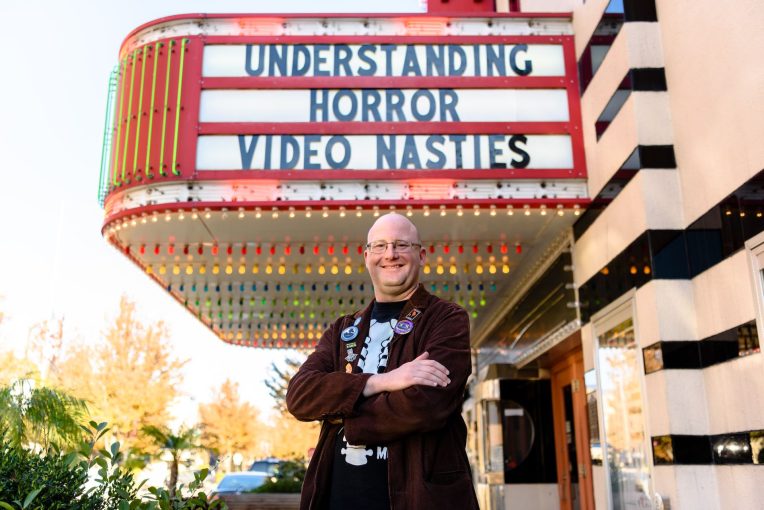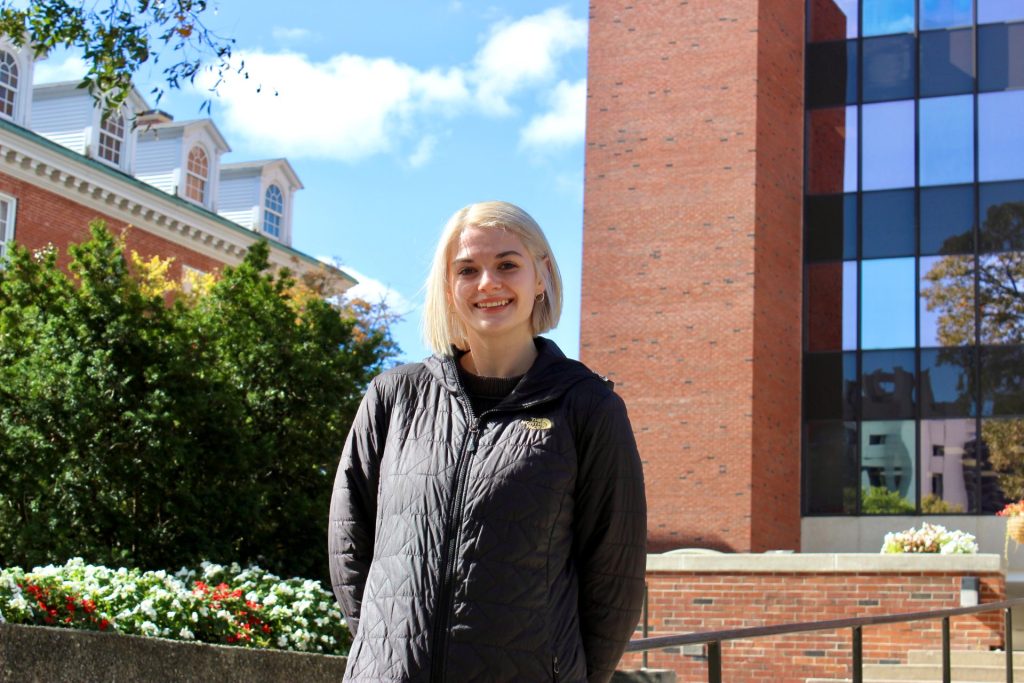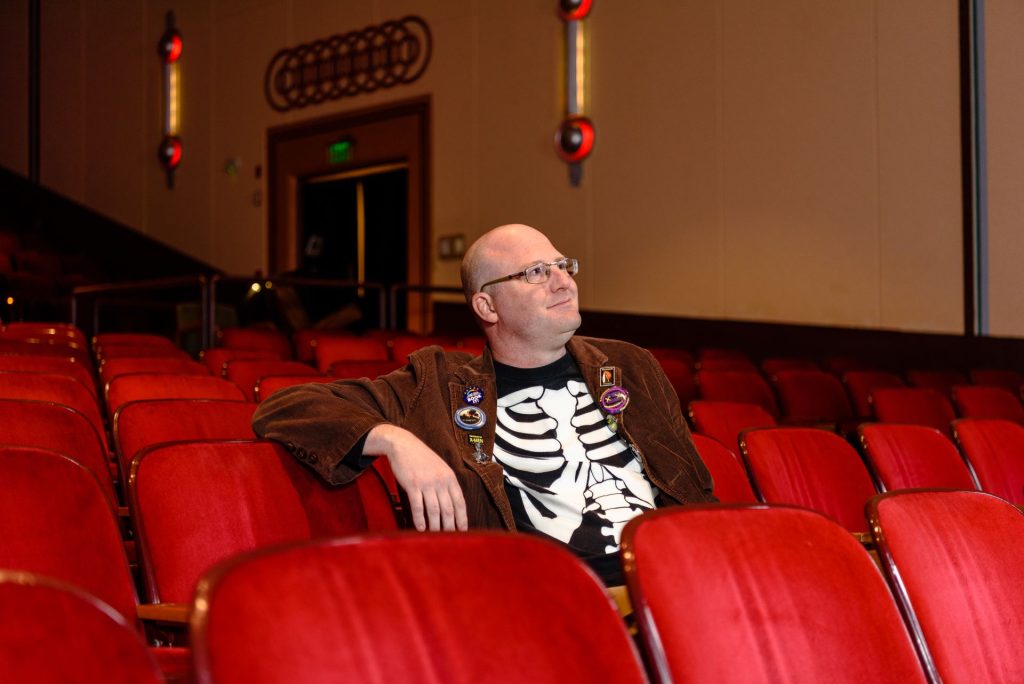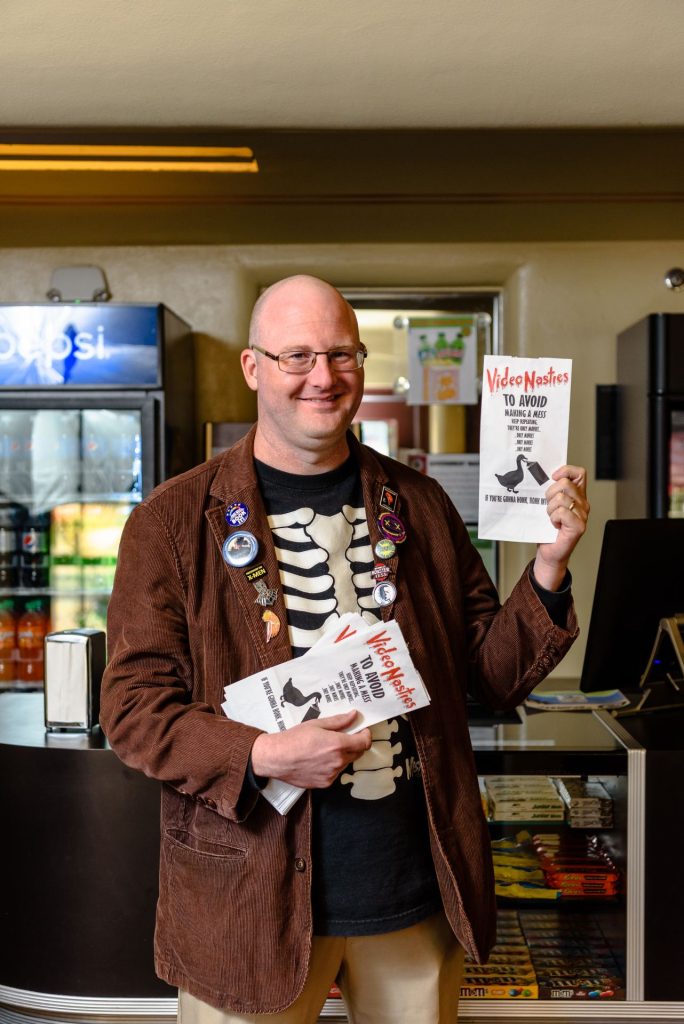From a young age, senior psychology major Madi Henness loved scary movies. She and her friends would watch Coraline and anything by Tim Burton.
“I liked the adrenaline rush horror gives you,” Henness said. “And now as a young adult, I love true crime and reading horror books.”
Henness’ love for darker media led her to take Illinois State’s Understanding Horror: Why would anyone love to be scared? class, taught by Dr. Eric Wesselmann ‘03, M.A. ’05, a professor of psychology, this fall.
Students enrolled in the eight-week interdisciplinary Advanced Honors Seminar course watched eight horror movies (six of which were at the historic Normal Theater) and discussed each film. Their post-movie analysis drew upon cross-disciplinary theories and research published in peer-reviewed literature along with academic blog posts.
“Students are connecting the readings and film to their own lives, drawing on personal experience from an academic lens,” said Wesselmann. “They haven’t seen most of the films discussed in the class, but it’s designed that way to broaden their horizons. It’s education in a different way.”
Though this was Wesselmann’s first horror film-focused course at Illinois State, he previously taught lectures on horror in a psychology of film in spring 2020 and at Purdue University, where he also received his Ph.D. in personality and social psychology.
Understanding Horror combined Wesselmann’s love for horror and psychology.
“It can be surprising how much power these films contain,” he said. “When I introduced these films to my students and the general audience, I spent some time talking about the historical context that those films came out of; what it might have been like to see those films when they were released; why the film was so groundbreaking; and I encouraged them to think about their reaction to every film we see. These films are the products of their own time, but we experience them from our own cultural experiences and biases. So that’s influenced how we see them.”
Many students enrolled in the class were curious about their own fascination with horror. Wesselmann said he’s on a personal quest to understand why people like the genre.
“It’s been a lot of fun to take my passions and talk about them in a scholarly way.”
Dr. Eric Wesselmann
“It’s been a lot of fun to take my passions and talk about them in a scholarly way,” he said. “When we talk about horror scholarship and the psychological perspective, the discussions often are theoretical. More of my interest is in terms of audience experience, or the social experience of watching horror—an entertainment genre that’s supposed to provoke a negative emotion and fear.”
Wesselmann said people like horror for different reasons, but there’s a distinction between liking horror films and liking to be scared.
“Some folks like to feel fear in a safe environment because it gets the blood pumping, and some folks will use this type of entertainment to work through their own trauma by identifying with a character and their strengths and it makes them feel brave,” he said.
Throughout the course, Wesselmann previewed movies like Evil Dead 2: Dead by Dawn, The Witch, The Color Out of Space, Video Nasties, House, and Horror Noire.
Henness said she enjoyed watching Wesselmann’s film selections and learning about his perspective to connect academics and horror. She said her biggest takeaway was learning about different horror genres.
“As we go forward, we dissect what the creators have said about these movies and look at how the audience has perceived them, like slasher films—some audiences perceive these movies as being misogynistic and against women because the victims are women; but the producers didn’t intend it to be that way,” she said. “It’s interesting to see how audiences look at these films and how the director wants you to see it.”
Wesselmann hopes to teach the class in the future and would like to expand the course for a full semester for students.




